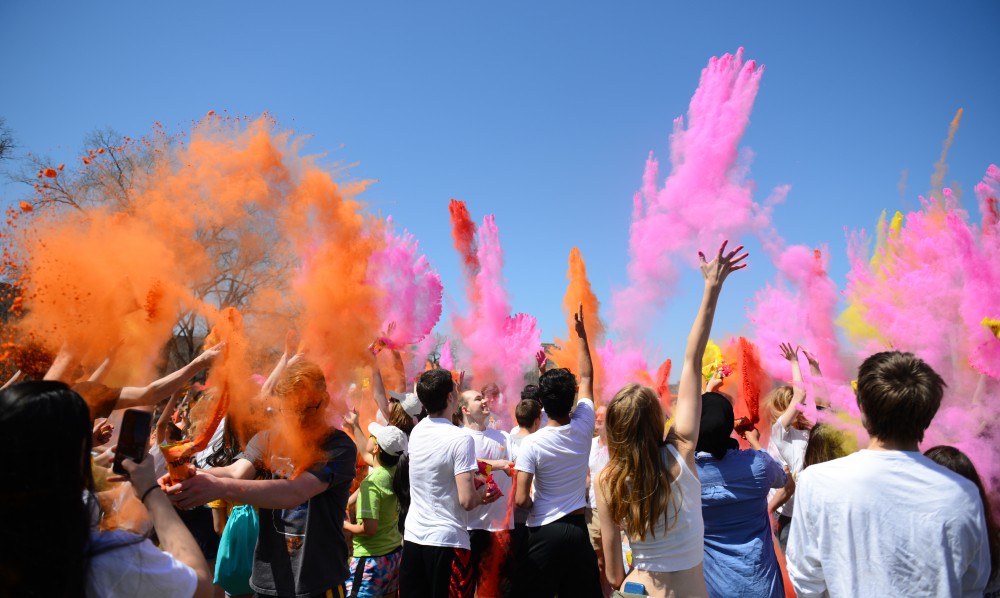Vibrant colors, echoing music, formerly-white t-shirts and centuries of tradition: this is the Holi festival.
Yesterday afternoon, hundreds of students gathered to rejoice in the Hindu festival of colors. Hosted by the University’s Bharat club, Holi celebrates the success of good over evil and welcomes the coming of a new spring.
Holi is the Indian and Nepali spring festival, also known as the festival of love, intended to help participants forgive, forget and repair broken relationships while ringing in the new season.
Soumya Marasakatla, president of Bharat, said the seasons in India are dictated by astronomy instead of temperature.

Holi was celebrated March 1 and 2 this year in India, but given the Minnesotan climate, we had to wait a few more weeks, Marasakatla said.
A traditional Holi celebration takes place over the course of two days: the night before the event and then the event itself.
The night before is ritualistic, taking place around a bonfire where people come to pray for their internal evil to be destroyed.
The next day is purely for celebrating. Dried paint, water guns, food and laughs are rampant. It is a light-hearted free-for-all and no one is safe from the neon tints of spring.
Nick Mattson, a sophomore studying psychology said, “As a Hindu, I feel Holi is something that helps me get closer to my faith.”

It gets good energy flowing and good vibes, he said.
Holi’s mythological roots began with the legend of Holika, a demon and sister of the demonic King Hiranyakashayap.
The theme of good triumphing over evil stems from the myth of Hiranyakashayap being defeated by Vishnu, a Hindu god.
Business student Alex Lumsden and sociology student, Ellie Stencel, both said they knew very little about the celebration before attending.
“I knew that it was a festival of color, but that’s about it,” Lumsden admitted.
The pair came to meet up with a group of friends and teammates to experience their first Holi.
“I’m meeting up with my Indian dance team [Dance of Other Measures],” Lumsden, who is not Indian, said.
Saurabh Gera, an attendee, said, “Hinduism is not a religion, it is a way of living.”
All people are welcome — Hindu, Muslim, Christian and others — we believe in welcoming all people to celebrate, Gera said.
Mattson, however, thought that those celebrating should know the cultural history.
“This event should be for everyone, but you should also be aware of your own positionality and respect the culture that you are taking part in,” Mattson said.









